Every person’s experience of religion is different. So is each person’s process of leaving religion. At the conclusion of this short piece, I will share some resources that support the religious deconstruction and reconstruction journey.
The terms “deconstruction” and “reconstruction” have worked their way into common vernacular. But just to be sure we are on the same page. I use the term “deconstruction” in this context to refer to the process of critically scrutinizing one’s religious beliefs, practices, culture and relationships, often sparked by a circumstance or realization that causes one to doubt and question their religion as they learned it. The “reconstruction” aspect of the process is the journey of rebuilding one’s worldview and cultivating an authentic, meaningful and liberating post-religion spirituality. What that looks like for each person is unique as well.
In 2021 I founded the Center for Non-Religious Spirituality (CNRS), which is a community and network of resources for those in the process of religious deconstruction and reconstruction. Thorough CNRS, I lead a training and certification program for non-religious (and interspiritual) spiritual directors, with an emphasis on faith transitions, religious deconstruction and reconstruction, and existential health.
What follows are ten things I stopped doing after leaving religion. By the way, these choices did not wreck my spirituality, lead me astray, curse my life or result in the wrath of God. I say this because many people feel guilt, anxiety, fear and shame about their decisions to separate from their religion. The reasons for feeling this include:
It’s often the case that one’s personal identity, existential security, core beliefs, personal lifestyle, familiar culture and close relationships are all tied to their religion. It’s common for a person to feel a spectrum of volatile feelings in their religious deidentification.
It’s an unfortunate reality that religious communities are often not very kind to those who leave. It’s not uncommon for one’s former religious “friends” to question, scorn, shame or shun someone who separates themselves from their former religious community.
Deconstruction and reconstruction is a process that doesn’t happen in a few weeks or months. If your lifelong concept of God is based on performance, obedience and fear of God’s punishment, disfavor or rejection, the distress of being “wrong” or “backsliding” can be a very real struggle in the leaving religion process.
With all that in mind, here are some choices I made in the initial stages of my deconstruction process. These are descriptive, not prescriptive. I mention them to help people know they are not alone of they are working through similar dynamics for themselves.
1. Stopped identifying as a “Christian”
I realized that my spirituality and even my continuing interest in Jesus could no longer fit, and was even contrary to what I had learned the term “Christian” to mean. For many people who leave religion, there is often only one reasonable answer to many questions framed for a “yes” or “no” response, which only frustrates the hell out of the person asking it.
Are you a Christian?
Do you believe in God?
Do you follow the Bible?
The only truly honest answer to questions like these would be, “It depends on what you mean by “Christian”… by “God”… on what interpretation of the “Bible” you are referring to. Since I am often asked, at the end of this article I answer the question, “Am I a Christian?”
2. Stopped attending church
For me, church was something you did to be a good “Christian” and devoted church member. Each person’s experience of church is different, but for me, church was meeting-based and surface-level relationships, and lacked the depth, honesty, authenticity and vulnerability that I needed. For this and other reasons, church was no longer a healthy place for me to explore spirituality and cultivate meaningful relationships.
You wouldn’t hold an AA meeting in a bar. I could not work my process of religious deconstruction and reconstruction in an environment that became toxic to me on many levels. I’m not saying that all churches are toxic, and people often move on to a more loving, accepting and progressive faith, spiritual or non-religious community. But a person should not feel guilty if they choose to disassociate with religious community temporarily or permanently.
3. Stopped reading the Bible
Once I discovered that much of the “Christian theology” I learned from the Bible was untenable, I had to step away from the Bible entirely and began exploring a spiritual life on different terms. This included investigating other fields and spheres of knowledge, and several wisdom traditions that I had previously been discouraged from exploring.
I am a strong advocate for an interdisciplinary approach to the religious deconstruction and reconstruction process. Exploring the spectrum of the natural sciences and humanities is useful. There are great benefits to exploring the fields of philosophy, psychology, and anthropology, as well as investigating the spiritual insights of the East. Many years later as a result of my work in biblical criticism and the philosophy of religion, I was able to find great meaning and value in the Bible.
I published two previous articles about the Bible that might be useful in your deconstruction process:
4. Stopped intercessory prayer
My beliefs about God as framed by Christian theism changed, and I could no longer engage in a framework that petitioned a “God” from outside the world to bring change by divine intervention, and instead considered how I might be part of the solution myself. I previously published an extensive Substack article on this subject, “Will you pray for me?” Re-framing “prayer” in post-religion spirituality.
5. Stopped listening to “Christian” music
It was necessary for me to completely remove myself from Christian sub-culture in order to detox and regain my sanity. This included no longer listening to “Christian” radio, “Christian” sermons and teachings or reading “Christian” books. In its place I opened myself to exploring the arts and culture more broadly. I devoted a podcast to discussing the issue of Christian music. Sure, I miss Rich Mullins and a little Switchfoot occasionally is a good thing, but mostly I had to pull the ripcord on Christian subculture when I first walked away.
The separatist mentality of religious subculture can cut people off from connection and relationship with others outside that milieu, which significantly limits the people who could be contributing to our journey of personal growth and development. By the way, you have permission to stop feeling guilty about enjoying non-religious interests, hobbies and pleasures.
6. Stopped arguing theology
I lost my interest in trying to be “right” about my beliefs, explain or defend my spiritual path, or engage with people who wanted to debate God and theology. Too often, theology isn’t the free search for truth, but rather a defense of an already held position. Theology often becomes apologetics, rather than seeking out the truth in and of itself. Theological reasoning is often circular, inevitably “proving” the truth of its own presupposition. We could be reaping the benefit from our collective religious, spiritual and non-religious experiences, traditions, teachings and stories rather than arguing and killing each other over them.
The truth is bigger than any one meaning system - whether it be religion, spirituality, philosophy or science. It is within our power to fully embrace and follow our meaning system without creating division, destruction, hostility, or hatred. Within every meaning system we can find a rationale for love, solidarity, harmony, compassion, justice and the responsible search for truth. If you can’t find it in yours, try harder or construct a different one.
That theology is primarily an apologetic for an already established belief system, doesn’t make theology wrong. You just have to recognize what it is and what it isn’t. We have all heard the phrase “consider the source”. Source evaluation is the process of critically evaluating information in relation to its given bias or purpose.
Upon leaving religion, you may grow weary of incessant God talk. It’s possible there will be times when you grow sick of the constant theological discussion and debate, and the never-ending hamster wheel of new and improved concepts, beliefs, understandings, and teachings. It’s okay to put a pause on trying to “figure it out.”
7. Stopped practicing Christian rituals
Praying at meals, maintaining a daily quiet time, attending church, and following the holy seasons were no longer commitments of mine, and I cultivated my own ways of living and practicing my spiritualty, values, and convictions. In the work I do with people in their religious deconstruction/reconstruction process we often explore cultivating spiritual practices or rituals that are meaningful for them. Some of the questions we address toward that end are:
What makes you come alive?
What satisfies you most deeply?
What brings you joy?
What centers you?
What makes you feel connected to yourself?
What forms of self-expression are the most gratifying?
Where does your sense of curiosity take you?
Where in life are you inspired to be a tangible expression of love, compassion, courage and service?
What nurtures a greater love for yourself and others?
8. Stopped speaking in Christianese
Much of the Christian lingo, jargon, quoting Bible verses, and pat answers of my former “Christianity” no longer applied or felt hollow, and I instead began speaking and connecting with others with my own heart and words. Every religious subculture has it’s unique words, phrases and sayings:
“born again”
“saved”
“filled with the spirit”
“walk with the Lord”
“hedge of protection”
“sinner’s prayer”
“how’s your walk”
“God’s calling me”
“lay it down”
“washed in the blood”
“I just feel lead”
“in Christ”
“Lord willing”
“crucified in Christ”
“be blessed”
“let go and let God”
I sometimes wonder if anyone really knows what this jargon actually means. It’s as if by adopting the common language we trick ourselves into believing we are experiencing or living a special reality. What would it be like if we could share, express or describe our spiritual lives in common and everyday language, or to describe your reality in your own words and language? What does this really mean to you? What reality are you actually experiencing? Describe it. How are you experiencing it? What does it look like, feel like, smell like, taste life, sound like? What color is it? What shape is it?
9. Stopped acting “Christian” in order to fit in or please others
I came to a point where I could no longer maintain a “Christian” façade in order to appease people in my daily life or social media world, and I decided it was more important to be myself without apology. Someone needs to hear this:
You have no obligation to defend your journey.
There is no jury you must answer to.
Speak your truth with authenticity and conviction.
Stop trying to accommodate people who don’t agree with you.
Stop editing and toning down what is real to you because you are worried about what other people think.
Of course there are those who are going to think you are deceived, deluded, apostate, confused, foolish, and in danger of all sorts of horrible things and punishments from God.
So!
As the saying goes, “Not all those who wander are lost.”
10. Stopped judging people
Religion is often dividing up the world into “us” and “them”, “believers” and “unbelievers”, “saints” and “sinners”, “heroes” and “villains”, the “holy” and the “heretic”. After leaving religion I started looking past the labels with which I had previously learned to judge people. I discovered that human beings were much more complicated, layered, nuanced and extraordinary than the stereotypes let onto.
Upon leaving religion, you may find that the very people your religion judged and condemned are the people you find the most interesting and enjoyable. Once you come out from under the judgmental labels, views and prejudices you learned through religion, you start realizing how much you truly like and enjoy the people you were taught to hate. This is another liberating aspect of shedding religion. For too long you shut yourself off from a lot of beautiful and extraordinary people in this world to enjoy and learn from. I remember that day when my entire relationship with humankind changed. It was when I stopped judging people, and reached out to the deepest reality I knew was present in every human being.
People are born human and are conditioned by narratives and ideologies of race, religion, culture, politics, nationality, and society. This is not necessarily a problem, unless it causes you to violate the first and most fundamental truth of who we all are - human. Identity narratives should not tell you who to love and who to hate, who to accept and who to reject, who to defend and who to attack, who to help and who to disregard.
We are all 100% human. This means we all need the same things, want the same things, and fear the same things. Don’t let the labels fool you. At the deepest level we are more alike than our ideologies will admit. What is most intimate, is most universal. Press deep enough into each other’s hearts and lived human experience, and we find each other. It’s true that diversity is beautiful, as lone as we remember that oneness is the secret of everything.
Deconstruction Resources
Here are 11 articles I've recently written to help you in your religious deconstruction and spiritual reconstruction process:
“Jim, are you a Christian?”
“Jim, I am new to your page. I’m slightly confused. It seems you often talk about Jesus but you obviously are not fond of religion. Are you a Christian?”
*
“Thanks for the question. For many years I identified myself as “Christian”. I embraced this label in college, went to seminary, and for many years was a successful Christian pastor. Ultimately, I left my ministerial career and Christian belief-system 25 years ago.
Since that day, I no longer identify as “Christian”. The term itself can mean many different things, but I can't imagine I'd qualify even with the most generous definition. I do not subscribe to orthodox Christian beliefs, I cannot in good conscience claim to be “Christian”.
In general, I don't do labels. I accept that I am a card-carrying member of our species Homo sapiens, and this truth has grown more deeply and profoundly meaningful. I believe Jesus himself most understood himself as someone who courageously stood in solidarity with humankind, hence his own preferred label “son of man”. Every day is a new adventure in the journey of discovering and actualizing the full measure of all that it means to be me and to courageously embrace and be transformed by the totality of my lived human experience.
I am not a “Christian” but I ascribe significance to Jesus. I resonate with the story about him as a human being. I see Jesus as one who lived a life of compassion, stood with the victims of this world against their oppressors, and tied his destiny to the marginalized and powerless against the iron fist of the religious and political establishment. I see Jesus as a man who lived courageously according to his convictions. He is depicted as a deeply spiritual and wise man who challenged people to find true peace, liberation and wholeness within themselves. I understand the central message of Jesus to be that humankind is not separated or estranged from God, but one with God.
I don’t think of Jesus as a religion, or someone to be worshipped. I don't think of Jesus as the only one who had deep spiritual understanding, or the only one who can inspire a life of goodness, human solidarity and compassion. I believe the significance of Jesus was his life, not his death.
I have no problem with a Jesus who got angry and sometimes became unhinged. I resonate with the Jesus who was a revolutionary and rebel, or a Jesus who didn't mince words with people who misused religion, and even someone who could be downright profane and known to get a little crazy when he had too much wine. What made Jesus unique was how he put it all together to be the human being that he was. There's nothing more divine than that.
So, am I “Christian”?
I don’t identify as a “Christian” and I have often noticed how Christianity has very little to do with the Jesus I know. But I would stand side-by-side with Jesus any day to advance the cause I saw in his heart. If I had to choose a team to start a revolution, Jesus would definitely be the top pick. Jesus holds significance for me because my investigation into Jesus was what opened my eyes to liberating truth. He’s not the only one who attested to this truth, but it’s how I initially got it and for this I am grateful.
Jesus is significant to me but not in the ways I learned in Christianity. Jesus didn’t lead me to God, he talked me out of what I thought was “God”. He didn’t solve the problem of my separation or estrangement from God, he taught me that no such separation or estrangement is real.
I don’t believe I need to be saved from myself or anything else, or that Jesus is the ticket to streets of gold in the afterlife. There are a range of views about Jesus, which include that Jesus never existed, Jesus was a lunatic, Jesus was only human, Jesus is God, Jesus opposed God. I think it’s all of the above.
In my view, the Jesus of religion, which Christendom manufactured, never existed. This is a “Jesus” that the Church has distorted and corrupted in order to serve its theology, politics and agenda. Christianity is not the fault of Jesus.
I see Jesus as one who had a touch of madness, a bit unhinged, and a renegade with conviction. He was also a man of deep love, tenderheartedness and compassion.
On the one hand, Jesus called the religious leaders of his day every name in the book, was basically one big middle finger to the establishment and their rules, and knew how to use a whip if necessary. But he also defended and stood in solidarity with the marginalized and oppressed, wept at the suffering of humankind, touched the untouchables with his own hands, and even straightened out a wine problem at a wedding because it upset his mother. It's the humanity of Jesus I admire. It takes guts to be human the way Jesus was.
Back in the day, I told people that one became a Christian by accepting Jesus into their heart. It was a legal contract, spelled out in the terms of substitutionary atonement and Christus Victor, which stamped your ticket to heaven. One’s heart didn’t really have much to do with it.
I feel a heart connection to the Jesus portrayed in the gospels that is far more meaningful that what I had in my religious days. The reasons I once believed Jesus was significant have all fallen away but other reasons unique to me have grown. I can identify with the madness, humanity, tenderness and moxie of Jesus.
Stories of Jesus come to my mind at the strangest times. I see him kneeling down in the dirt with the shamed woman, throwing in his lot with the least of these, and stopping church to point out the value of the widow’s mite. Sometimes the suffering of the world makes me weep, and I know someone has shed these same tears. Jesus wept. In many ways, I see that I am only now understanding the life, teachings, wisdom, and spirituality of Jesus, which were previously obscured to me by religion.
In my view, Jesus is divine in the same way that all of us are. The difference between Jesus and most others is that Jesus fully knew and embodied the truth of who he was. When Jesus said he was the way, the truth, the life, and way to God, he was indicating that it was unnecessary and futile to seek God through the mindsets, ideology, formalities, and rules of religion. Jesus lived and expressed the fundamental truth that sets you free, which includes the realization that there is no separation between us and God and everything God represents.
I consider the life, teachings, and wisdom of Jesus to be universally relevant, regardless of one's religious, spiritual, or philosophical point of view. Christianity does not hold unique and absolute claim to Jesus. Just because you are a Christian doesn't mean you truly get Jesus. In fact, it may be the reason why you don't.
Christianity is not the fault of Jesus and one should be careful not to associate the two together too closely or at all. You don’t have to be a Christian and could even be atheist and appreciate the life and legend of Jesus. As a symbol of liberation, Jesus has endured the ages in the hearts and minds of countless people. It’s not mandatory to find meaning in Jesus, but neither is it necessary to discard Jesus if he is meaningful to your spirituality.
I don’t identify as a Christian. I don’t equate Jesus with Christianity. I don’t try to persuade anyone else to find meaning in Jesus. I don’t think it is necessary to believe in or have some active interest or connection with Jesus. I’m only describing me.
Truth is, after all these years I still carry Jesus in my heart. Not because I believe he saves me or that he is the only truth. It’s because I have this feeling in many of the most heartbreaking, confusing, saddest, and lonely moments of life… that in some way Jesus would have understood and cared. And somehow that feeling in those moments means something.”
In Summary
The terms “deconstruction” and “reconstruction” have worked their way into common vernacular, but the process looks different for each person, and it is not something that happens in a few weeks or months.
For many people who leave religion, there is often only one reasonable answer to many questions, which starts with, “It depends on what you mean by….”
The separatist mentality of religious subculture cuts people off from connection and relationship with others worth knowing.
You have no obligation to defend your journey.
Christianity is not the fault of Jesus and one should be careful not to associate the two together too closely or at all.
We are all 100% Human.
“I do not believe in God and I am not an atheist.”
- Albert Camus, Notebooks 1951-1959








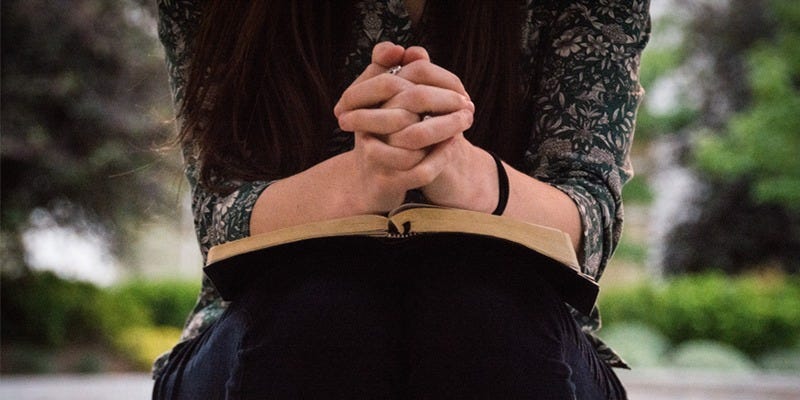


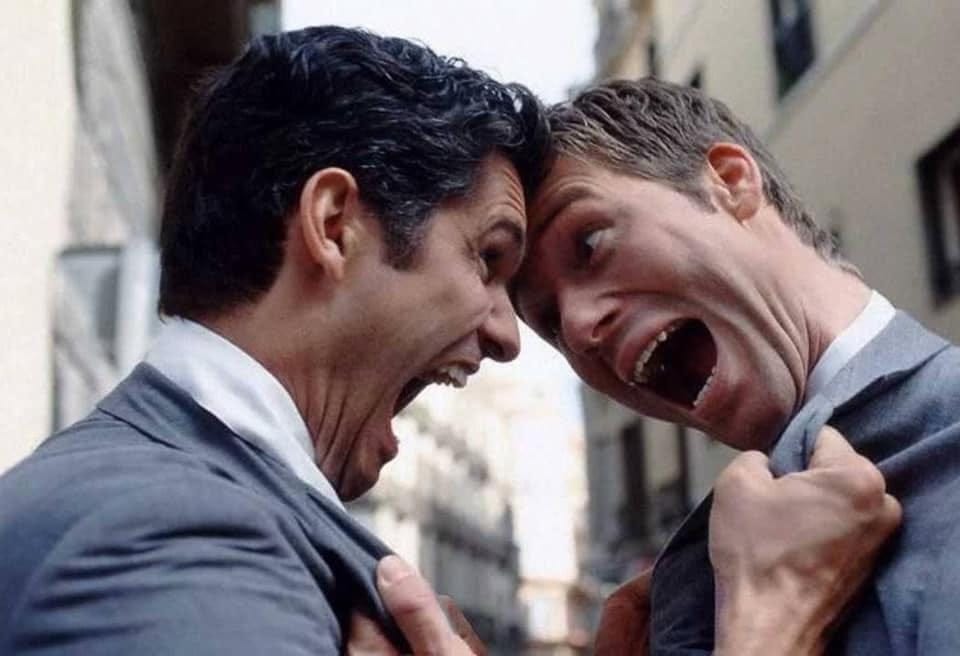

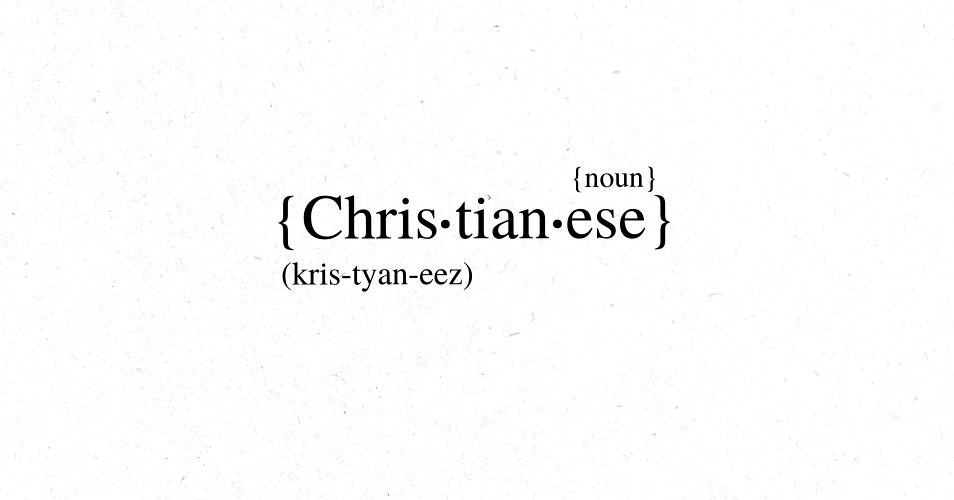

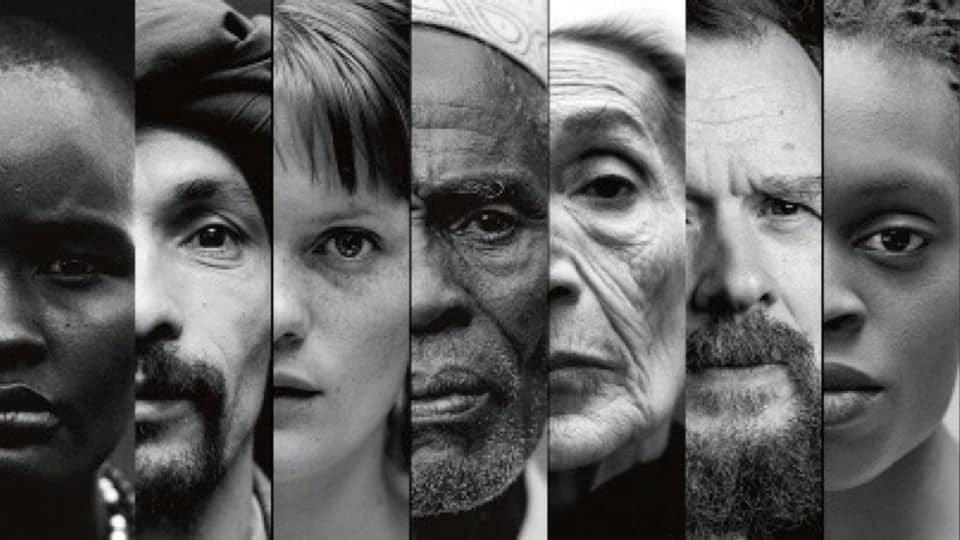
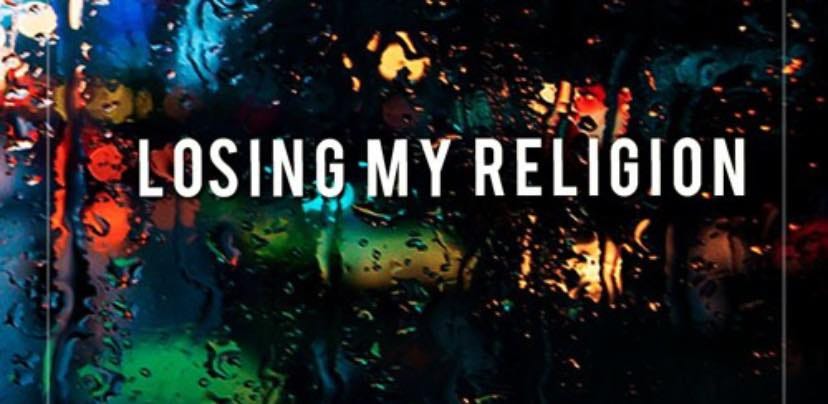

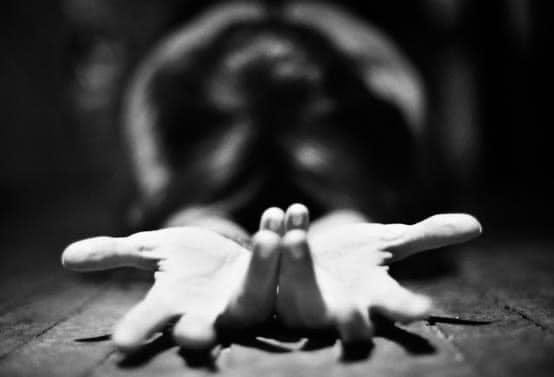
This is the kind of spiritual detox that should come with incense, confetti, and a therapist on standby.
I stopped trying to be palatable the moment I realized the Divine doesn’t need my performance, just my presence. You nailed it. Half of “Christian life” was me pretending to feel something that wasn’t even mine. Once I let go of the script, I met God in the quiet. No sermon. No Spotify worship playlist. No “hedge of protection” required.
Your list isn’t just deconstruction. It’s resurrection. And not the “believe this or burn” kind. The real kind. The kind that says, “Here I am, as I am, and that’s holy enough.”
Thank you for making space for wandering saints and sacred misfits.
—Virgin Monk Boy 🕊️🔥
On Christianese Jargon—”I sometimes wonder if anyone really knows what this jargon actually means”— this rings SO true to my own lived experience. I'm pretty sure everyone has different and incompatible mental models of what these terms mean to them personally, but nobody really knows or wants to admit it.